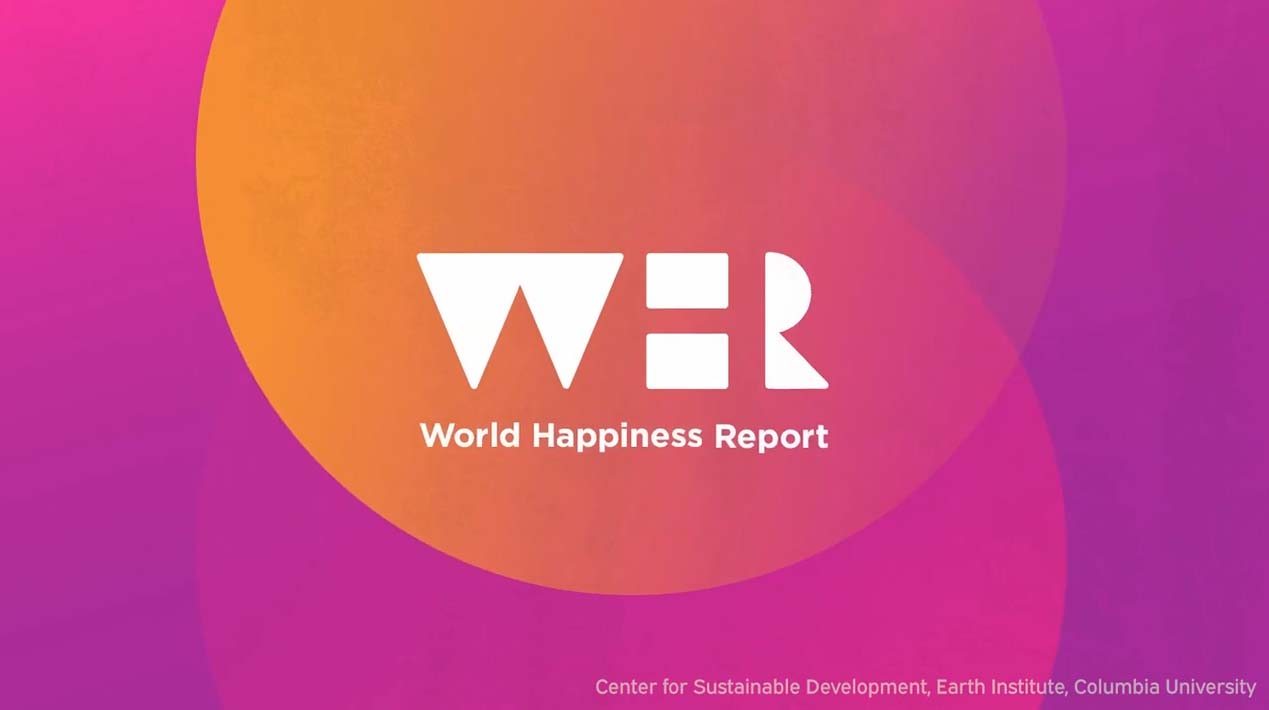
20
World Happiness Report 2023: Happiest countries prove resilient despite overlapping crises
- Finland tops table of ‘happiest countries’ for sixth year in a row
- Global life satisfaction averages remain high despite COVID-19 pandemic
- 10 years after first International Day of Happiness, measuring and advancing wellbeing seen as priority
Research published in the latest World Happiness Report has shown remarkable resilience in global life satisfaction in spite of multiple crises including the COVID-19 pandemic.
The Report is edited by a team of the world’s leading wellbeing experts including Professor Jan-Emmanuel De Neve, Director of the Wellbeing Research Centre at the University of Oxford and Professor of Economics and Behavioural Science at the Saïd Business School.
Since the publication of the first World Happiness Report in 2012, there has been a growing consensus among researchers and policymakers that happiness can be promoted through public policies and the actions of business and civil society. Moreover, happiness and wellbeing can be usefully measured in a number of ways, including through surveys of people’s satisfaction with their lives.
The World Happiness Report research leverages six key factors to help explain variation in self-reported levels of happiness across the world: social support, income, health, freedom, generosity, and absence of corruption. Governments are increasingly using this analysis to orient policies towards happiness.
This year’s Happiness Report also shows that despite several overlapping crises, most populations around the world continue to be remarkably resilient, with global life satisfaction averages in the COVID-19 years 2020 to 2022 just as high as those in the pre-pandemic years.
“The ultimate goal of politics and ethics should be human wellbeing,” said Professor Jeffrey Sachs, President of SDSN and Director of the Earth Institute’s Center for Sustainable Development. “The happiness movement shows that wellbeing is not a ‘soft’ and ‘vague’ idea but rather focuses on areas of life of critical importance: material conditions, mental and physical wealth, personal virtues, and good citizenship. We need to turn this wisdom into practical results to achieve more peace, prosperity, trust, civility – and yes, happiness – in our societies.”
Finland remains top of the Report’s country rankings for the sixth year in a row. Lithuania is the only new country in the top 20, up more than 30 places since 2017. War-torn Afghanistan and Lebanon remain the two unhappiest countries in the survey, with average life evaluations more than five points lower (on a scale running from 0 to 10) than in the 10 happiest countries.
The top 10 countries by this metric are:
- Finland
- Denmark
- Iceland
- Israel
- Netherlands
- Sweden.
- Norway
- Switzerland
- Luxembourg
- New Zealand
This year’s Report also takes a closer look at the available survey data from Ukraine.
“The devastating impact of the war is evident to all, and so we also find that wellbeing in Ukraine has taken a real hit”, noted Professor De Neve. “But what is surprising, however, is that wellbeing in Ukraine fell by less than it did in 2014 when Russia annexed Crimea, and this is thanks in part to the extraordinary rise in fellow feeling across Ukraine as picked up in data on helping strangers and donations – the Russian invasion has forged Ukraine into a nation.”
“The overall goal is a happier society,” said Professor Lord Richard Layard, Co-director of the Wellbeing Programme at the London School of Economics and Political Science. “But we only get there if people make each other happy (and not just themselves). It’s an inspiring goal for us as individuals. And it includes the happiness of future generations – and our own mental health.”
The World Happiness Report is a publication of the Sustainable Development Solutions Network, powered by the Gallup World Poll data. The report is supported by the Ernesto Illy Foundation; illycaffè; Davines Group; Unilever’s largest ice cream brand, Wall’s; The Blue Chip Foundation; The William, Jeff, and Jennifer Gross Family Foundation; The Happier Way Foundation, and The Regeneration Society Foundation.
The report is edited by Professor John F. Helliwell of the University of British Columbia; Professor Richard Layard, co-director of the Wellbeing Programme at London School of Economics; Columbia University Professor Jeffrey D. Sachs, president of SDSN and director of the Earth Institute’s Center for Sustainable Development; Professor Jan-Emmanuel De Neve, director of the Wellbeing Research Centre at the University of Oxford; Professor Lara B. Aknin, Director of the Helping and Happiness Lab of Simon Fraser University; and Professor Shun Wang, of the International Business School Suzhou, Xi’an Jiaotong-Liverpool University.
Both Professor De Neve and Professor Lord Layard are co-founders of the World Wellbeing Movement, which aims to translate research insights such as those included in the World Happiness Report into real-world impact.
You can view the full World Happiness Report 2023 at worldhappiness.report.
